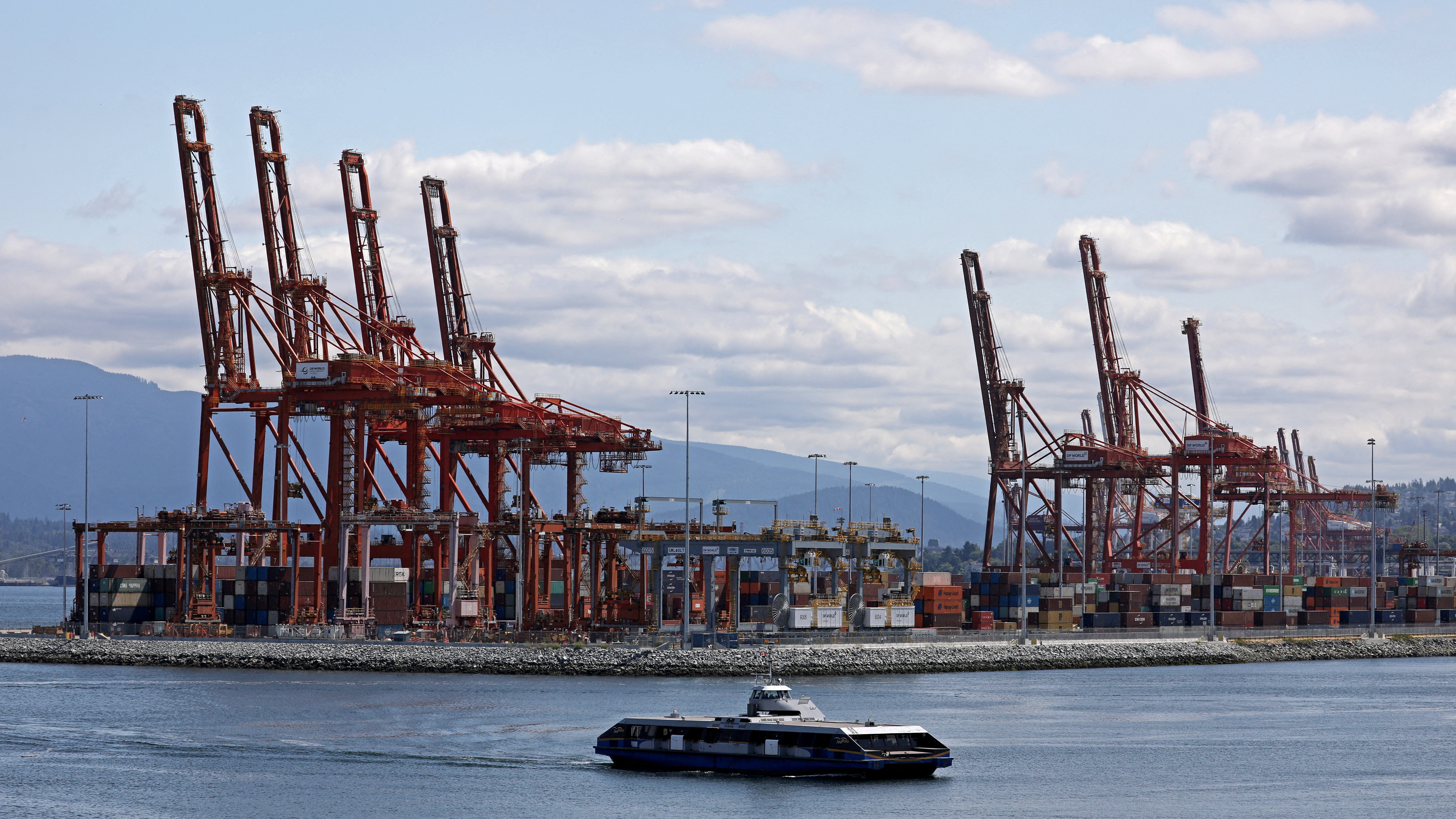By Nia Williams
July 18, 2023

A commuter Seabus passes idle shipping cranes towering over stacked containers during a strike by the International Longshore and Warehouse Union Canada (ILWU) at Canada's busiest port of Vancouver, British Columbia, Canada, July 11, 2023.

A commuter Seabus passes idle shipping cranes towering over stacked containers during a strike by the International Longshore and Warehouse Union Canada (ILWU) at Canada's busiest port of Vancouver, British Columbia, Canada, July 11, 2023.
REUTERS/Chris Helgren/File Photo
July 18 (Reuters) - Dock workers at ports along Canada's Pacific coast rejected a tentative four-year wage deal agreed with their employers last week and returned to the picket line, the International Longshore and Warehouse Union (ILWU) said on Tuesday.
The ILWU represents some 7,500 dock workers, who walked off the job on July 1 after failing to reach a new work contract with the British Columbia Maritime Employers Association (BCMEA), which represents the companies involved.
In a statement released Tuesday afternoon, the ILWU said its members had voted down the recommended terms of settlement because they did not believe the terms would protect their jobs.
"With the record profits that the BCMEA's member companies have earned over the last few years the employers have not addressed the cost of living issues that our workers have faced over the last couple of years as all workers have," the ILWU said in its statement.
The 13-day strike, which ended last Thursday, upended operations at two of Canada's three busiest ports, the Port of Vancouver and the Port of Prince Rupert, which are key gateways for exporting the country's natural resources and commodities and bringing in raw materials.
A strike resumption could trigger more supply-chain disruptions and risk worsening inflation.
Federal government mediators helped negotiate the deal reached last week. The office of Canada's federal labor minister, Seamus O'Regan, did not immediately respond to a request for comment on Tuesday.
Pierre Poilievre, leader of Canada's opposition Conservative Party, criticized O'Regan for failing to solve the dispute.
"He claimed he'd gotten a deal to end the strike. Now it's back on with massive costs to consumers, workers and business," Poilievre said on Twitter.
July 18 (Reuters) - Dock workers at ports along Canada's Pacific coast rejected a tentative four-year wage deal agreed with their employers last week and returned to the picket line, the International Longshore and Warehouse Union (ILWU) said on Tuesday.
The ILWU represents some 7,500 dock workers, who walked off the job on July 1 after failing to reach a new work contract with the British Columbia Maritime Employers Association (BCMEA), which represents the companies involved.
In a statement released Tuesday afternoon, the ILWU said its members had voted down the recommended terms of settlement because they did not believe the terms would protect their jobs.
"With the record profits that the BCMEA's member companies have earned over the last few years the employers have not addressed the cost of living issues that our workers have faced over the last couple of years as all workers have," the ILWU said in its statement.
The 13-day strike, which ended last Thursday, upended operations at two of Canada's three busiest ports, the Port of Vancouver and the Port of Prince Rupert, which are key gateways for exporting the country's natural resources and commodities and bringing in raw materials.
A strike resumption could trigger more supply-chain disruptions and risk worsening inflation.
Federal government mediators helped negotiate the deal reached last week. The office of Canada's federal labor minister, Seamus O'Regan, did not immediately respond to a request for comment on Tuesday.
Pierre Poilievre, leader of Canada's opposition Conservative Party, criticized O'Regan for failing to solve the dispute.
"He claimed he'd gotten a deal to end the strike. Now it's back on with massive costs to consumers, workers and business," Poilievre said on Twitter.
Reporting by Nia Williams in British Columbia; Editing by Sandra Maler and Leslie Adler
No comments:
Post a Comment